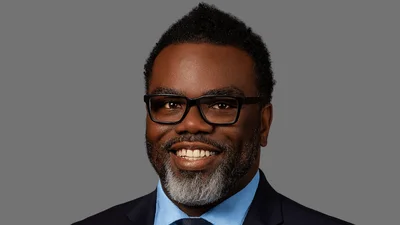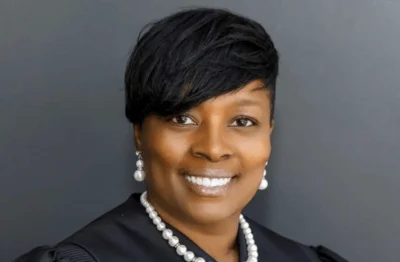John Catanzara, President of FOP Chicago Lodge 7 | YouTube / FOP Chicago Lodge 7
John Catanzara, President of FOP Chicago Lodge 7 | YouTube / FOP Chicago Lodge 7
A Cook County judge ruled Thursday that rank-and-file city police can choose independent arbitration over the Chicago Police Board, a civilian disciplinary board, for more serious disciplinary cases. But Judge Michael Mullen added a condition that could send the issue back to court: the arbitration proceedings must be open to the public.
“The restriction of public access to arbitrations for serious police discipline is in direct contravention to the well-defined and dominant public policy of accountability and transparency of the government services in general and the Chicago Police Department specifically,” Judge Mullen said in his ruling.
The law is silent on whether arbitration should be opened or closed, but opening police arbitration to the public is a compromise offering to Mayor Brandon Johnson, who opposed arbitration for police, along with the majority of City Council members, who twice rejected it. One of their principal concerns was that police arbitrations would be held in private, as they traditionally are for other public employees.
It’s unclear if the ruling will satisfy the mayor's office or the Chicago police union, FOP Lodge 7, which has for years sought arbitration for its members.
FOP President John Catanzara did not respond to a request for comment from Chicago City Wire. The mayor’s office also did not respond.
Arbitration would be an option for the police if the disciplinary matter is serious enough to warrant firing or a one-year suspension.
Kyle Cooper, president of the Police Board, told the Chicago Sun-Times that 20 disciplinary cases are pending before the board.
“In the weeks to come, the board will be hearing from the parties of the disciplinary cases currently before the board as to their position on how those cases should proceed,” Cooper told the Sun-Times.
The FOP maintains that the Illinois Public Labor Relations Act clearly gives the police, as it does other public employees, the right to arbitration. Independent arbitrator Edwin Benn inserted the right into the contract that City Council approved in December, but arbitration was voted on separately at the request of Mayor Johnson. Council rejected it twice.
Benn reprimanded council members after the first rejection in late January.
“Those alderpersons who voted to reject the arbitration requirements of the Final Award which placed the statutory and constitutional right of arbitration for protests of disciplinary matters in excess of 365 days into the parties’ collective bargaining agreement therefore violated their oath of office to ‘... support ... the Constitution of the State of Illinois,’” Benn wrote on January 4 in a “Supplemental Final Opinion and Award.”
Arbitration would have a significant impact on the workload of the Board. Max Caproni, the Board’s executive director, told the Chicago Tribune for an earlier story: “Our expectation would be that very few, if any, of those cases would come to the Police Board if this change takes effect. Bottom line, I think about 90% of our docket, we would lose that, if this change took effect.”
The cops have long maintained that the Board harbors an anti-police bias, leading to excessive disciplinary determinations.




 Alerts Sign-up
Alerts Sign-up